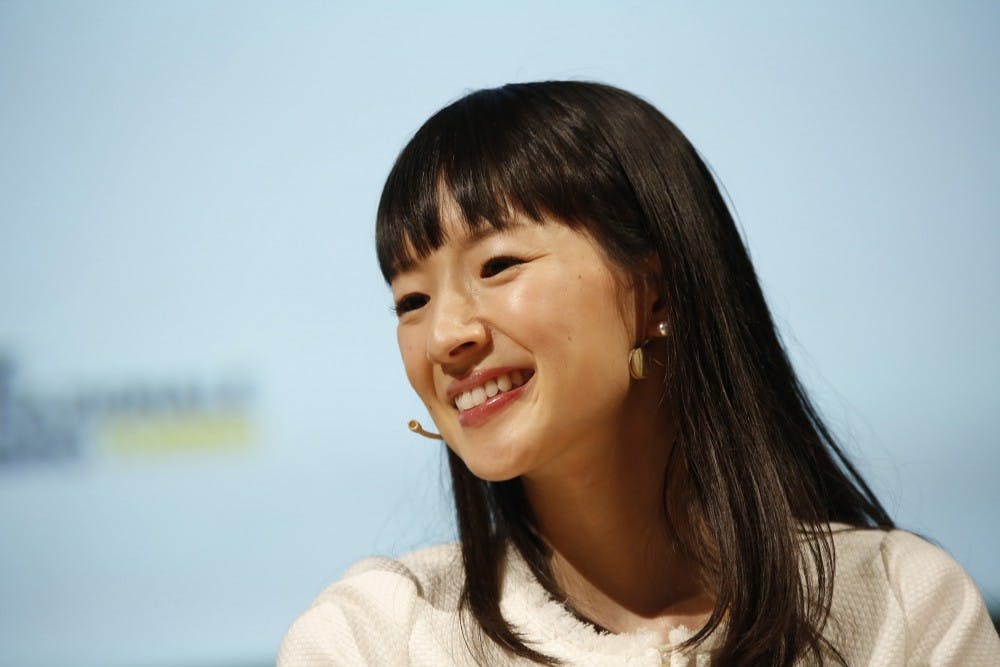Marie Kondo’s new Netflix series “Tidying Up With Marie Kondo” has sent the world on an organizing frenzy, and members of Ball State’s community have adopted her ideas into their lectures and daily lives.
The Japanese consultant embraces the minimalist lifestyle called the KonMari Method, which promotes the process of ridding items and encouraging individuals to choose “joy,” KonMari’s website states.
Her philosophy focuses not only on organizing one’s space, but learning more about oneself through the process, said Timothy Berg, associate teaching professor of honors humanities.
Kondo has written four books about the process of organizing, including her New York Times bestseller “The Magic of Tidying Up,” where she explains to readers that if they take the time to properly organize their house once, they will never have to worry about doing it again, according to the website.
Berg said he has his students read Kondo’s book in his class, discusses her ideas with them and encourages them to raise their value of materialistic goods.
“[KonMari] is less about cleaning out your space, then it is about self-discovery,” Berg said. “It’s not about decluttering, it's about keeping around things that you love.”
He said within a week, his students see beneficial changes in their lives.
Like Berg, who said having fewer items in your possession will not only lower the quantity but raise the quality, other members of Ball State’s community also practice this minimalism philosophy.
Jason Powell, associate teaching professor of honors humanities, said he assigns a project to his students that challenges them to limit their use of technology as much as possible in the course of a week. The students are also encouraged to reduce their purchases of unnecessary things and only spend money on necessities.
“It allows you to gain perspective of what is truly important,” Powell said. “It frees ourselves up from being tethered both physically and psychologically to certain objects or ideas.”
Individuals find it beneficial to live a lifestyle not heavily focused on materialistic objects, but rather focused on being grateful for the objects that benefit and improve their lives, Berg said.
Minimalism was not developed as a strict philosophy. Powell said if the process becomes too much of a burden, then it becomes counterproductive.
Powell defines minimalism as “decluttering emotionally, physically, and spiritually, in the large sense of that word.”
If an individual begins to get rid of objects of sentimental and important value or feels pressured to continue their organizing process, then instead of feeling relief, they may feel doubtful and empty, Powell said.
Berg said the philosophy is more about mental health than anything else and someone attempting to adapt to a minimalist lifestyle should focus more on how the process makes them feel rather than the amount of things they are getting rid of.
Students have found this type of decluttering helpful as well. Sophia Hoffert, a sophomore Spanish and history double major, said via email she believes college students can benefit from Kondo’s philosophy mentally as well as physically.
“My mind feels much clearer and more focused when my workspace is clean – there are less things for me to be distracted by,” Hoffert said. “This process is also a practice in the art of letting go, but on a much smaller scale.”
Contact Chase Martin with comments at cgmartin@bsu.edu. Contact Taylor Smith with comments at tnsmith6@bsu.edu or on Twitter @taynsmithh.





